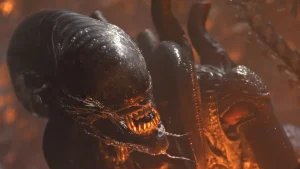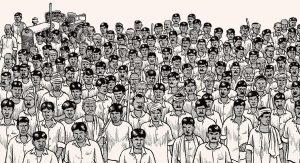Time is passing for video games. If you can believe it, 17 years ago today, the now-fabled Dead Space arrived on consoles and immediately set a new standard for survival horror games. Critics and players alike were captivated by its tense atmosphere and compelling narrative. The game’s combination of sci-fi horror and strategic dismemberment mechanics made it unlike anything else at the time. It was a rare title that delivered well, inducing genuine sci-fi fear and technological innovation, leaving a lasting impression on anyone who experienced it.
Yet for all its brilliance, Dead Space also serves as a reminder of lost potential. The series produced only two additional mainline games before being abruptly halted, and Visceral Games, the talented studio behind it, was shut down in 2017. Planned sequels were canceled, and a franchise that had once seemed poised to rival Resident Evil in the future never got the chance to continue. We’re left to reflect not just on what the series achieved but also on what could have been if circumstances had been just different.
From its very first moments, Dead Space demonstrated the heights survival horror could reach. Players were dropped into a mining ship overrun with grotesque Necromorphs, basically space zombies, and immediately confronted with a sense of isolation and dread. The game’s design rewarded precision and strategy, making combat feel tense and deliberate rather than simplistic like most third-person shooters appeared at the time. Every corridor, every flickering light, and every sound cue was a signal that worked to keep players on edge, creating an experience that was actually pretty terrifying.
The franchise built on this foundation with two more entries, each attempting to expand the story and mechanics without losing the tension that defined the original. Dead Space 2 introduced more of a focus on psychological horror elements alongside more refined combat systems, while Dead Space 3 experimented with cooperative gameplay and larger environments. These sequels proved the studio’s ambition to evolve the series, and the future looked bright. They deepened the lore and kept players invested in Isaac Clarke’s harrowing journey, showcasing a franchise that could have become one of the most respected names in gaming.
Despite the series’ quality, corporate decisions created an unfortunate ceiling for its growth, which is all too common an occurrence in today’s climate. The transition from the Xbox 360 and PlayStation 3 generation to the Xbox One and PlayStation 4 era coincided with EA reevaluating its priorities. The franchise had proven itself creatively and commercially, yet it was left behind as resources shifted to other, larger-scale projects, many of which were to chase the foundation of what today’s live-service titles are built on. It was EA that famously mentioned in the past that single player games were longer the best interest of its their players, so it’s not hard to imagine why a franchise like Dead Space might be left behind. This has, of course, backfired, looking at today’s standards. Even so, the series’ untimely end left fans frustrated, knowing that the potential for further innovation and expansion was squandered when the series still had so much to offer.
Visceral Games was widely respected for its ability to craft cinematic, story-driven experiences. The studio’s attention to narrative detail and immersive design elevated Dead Space beyond typical survival horror games. Environments were carefully constructed, and the tension created in each encounter was palpable. The studio’s vision had created a world that fans eagerly wanted to explore more of, and its closure left a void in the genre that has yet to be filled to this day.
Corporate decisions ultimately overshadowed the studio’s accomplishments. EA canceled further sequels and reallocated resources to franchises considered safer or more profitable. In 2017, Visceral Games was shuttered, leaving fans and developers alike disappointed. The closure not only halted a beloved series but also silenced an incredible team of talent, all for the sake of chasing the easy dollar. These people were capable of delivering experiences that balanced narrative, gameplay, and horror in a way few others could. The franchise ended not because of a lack of creativity, interest, or exposure, but because of shifting corporate priorities that left the series stranded, and that’s putting the reasoning nicely.
Looking back, the story of Dead Space is bittersweet. The games that exist continue to influence the survival horror genre, and the series’ legacy remains strong. However, the closure of Visceral Games and the premature end of the franchise serve as a reminder of what could have been. While a remake of the original game has since been released with positive reception, it is only that: a remake. Fans are thus left with excellent games to celebrate, but it is impossible not to feel disappointment for the untapped potential and the experiences that were never realized. The series remains a high point in gaming history, but it is also just another story of what happens when a promising intellectual property is directly controlled by a corporate entity that is not interested in the interests of the players that feed it.
What do you think? Leave a comment below and join the conversation now in the ComicBook Forum!
The post Today Is a Sad Reminder of What Happened to Dead Space & Its Studio appeared first on ComicBook.com.




